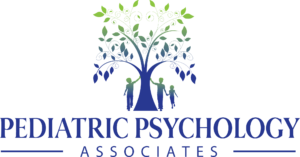 Call us
Call us
South Florida Community,
New York & Connecticut
(305) 936 - 1002
A child’s growth is more than just physical. As a young child ages, there are particular sets of behaviors that we expect to see during specific periods of life. We refer to these as Developmental Milestones. Developmental milestones are a way of observing how the child’s brain is growing. Some examples are sitting up, making eye contact, crawling, walking, and speaking. All children develop skills at a slightly different pace and sometimes not in the same order, so when a milestone is slightly delayed as other skills are emerging, it is not necessarily cause for concern, as the child may still be developing “on schedule.” However, when developmental milestones are not met within the expected time frame, it can be cause for concern and may need to be evaluated. The Center for Disease Control provides the following guidelines for the schedule for developmental milestones:

At 6 months, many children
- respond to own name
- respond to other people’s emotions and often seem happy
- copy sounds
- like to play with others, especially parents
At 1 year (12 months), many children
- use simple gestures, like shaking head “no” or waving “bye-bye”
- say “mama” and “dada” and exclamations like “uh-oh!”
- copy gestures
- respond to simple spoken requests
At 1.5 years (18 months), many children
- play simple pretend, such as feeding a doll
- point to show others something interesting!”
- show a full range of emotions, such as happy, sad, angry
- say several single words
At 2 years (24 months), many children
- say sentences with 2 to 4 words
- follow simple instructions
- get excited when with other children
- point to things or pictures when they are named
At 3 years (36 months), many children
- show affection for friends without prompting
- carry on a conversation using 2 to 3 sentences
- copy adults and friends
- play make-believe with dolls, animals, and people
If you notice that your child is not meeting some of these milestones, it may be a good idea to get a developmental evaluation from a psychologist. This consists of a detailed history from you of your observations of your child, along with interaction with your child to assess the degree of delay. Research has demonstrated that early identification of developmental delays and early intervention is highly correlated with better prognosis, so if you have concerns, waiting to see if it is “just a phase” may not be the best approach.






